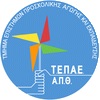Περίληψη Σύγχρονες παιδαγωγικές προσεγγίσεις επισημαίνουν την ανάγκη αναθεώρησης των καθιερωμένων συστημάτων αξιολόγησης της μαθησιακής διαδικασίας. Η παρούσα εργασία εξετάζει τη χρησιμότητα της παραγωγής καλλιτεχνικών έργων, ως εναλλακτικής τεχνικής αξιολόγησης, μέσα από την οπτική γωνία των φοιτητριών/τών που την εφάρμοσαν για την αξιολόγησή τους σε μη καλλιτεχνικό μάθημα στην τριτοβάθμια εκπαίδευση. Στην έρευνα συμμετείχαν 24 μεταπτυχιακές/οί φοιτήτριες/τές του Παιδαγωγικού́ Τμήματος Δημοτικής Εκπαίδευσης του Εθνικού́ και Καποδιστριακού́ Πανεπιστημίου Αθηνών οι οποίοι/ες, αφού παρήγαγαν πρωτότυπα καλλιτεχνικά έργα στο πλαίσιο μη καλλιτεχνικού μαθήματος, κατέθεσαν σε Δελτίο Αναστοχασμού την εμπειρία που αποκόμισαν από την αξιολόγησή τους με την εξεταζόμενη τεχνική. Οι απαντήσεις των φοιτητριών/τών αναλύθηκαν και ερμηνεύτηκαν με τη μέθοδο της ανάλυσης περιεχομένου. Τα αποτελέσματα της έρευνας δείχνουν τα οφέλη τα οποία αποκομίζουν οι αξιολογούμενοι εκπαιδευόμενοι από την εφαρμογή της εξεταζόμενης εναλλακτικής τεχνικής αξιολόγησης καθώς και τα εμπόδια και τις δυσκολίες που συνάντησαν κατά την εφαρμογή της. Τα αποτελέσματα της παρούσας έρευνας ενισχύουν την ανάγκη εμπλουτισμού των καθιερωμένων συστημάτων αξιολόγησης στη σχολική και την τριτοβάθμια εκπαίδευση καθώς και στην εκπαίδευση ενηλίκων με την ενδυνάμωση του διαμορφωτικού χαρακτήρα της αξιολόγησης, την ενεργοποίηση των εκπαιδευομένων στις διαδικασίες της αξιολόγησής τους και την αξιοποίηση των αποτελεσμάτων της αξιολόγησης για τη μαθησιακή προαγωγή των αξιολογουμένων και τη βελτίωση της μαθησιακής διαδικασίας.
(EL)
Abstract The starting point of this study was the finding that the established techniques applied to the assessment of students in higher education - mainly in the form of written and oral exams - do not sufficiently satisfy modern educational demands. Despite the modernization of the educational process that has been attempted in recent years in higher education, there is a constant need to review the student assessment systems in order to respond to the constantly renewed educational approaches. Surveying the field of alternative assessment techniques, techniques such as art production are identified which are compatible with contemporary learning environments, promote differentiated assessment and active learner participation, consider cognitive, emotional, and social learning outcomes and foster autonomy skills and self-regulation of the students. As an alternative assessment technique, the production of artistic works has a strong foundation in pedagogical theory, but insufficient implementation in educational practice especially when it refers to assessment in the field of a non-artistic course. This paper examines the possibilities offered by the production of artistic works, as an alternative assessment technique, from the perspective of the students who implemented it for their assessment in a non-artistic course in higher education. 24 postgraduate students of the Pedagogical Department of Primary Education of the National and Kapodistrian University of Athens participated in the research, who, after producing original artistic works in the context of a non-artistic course, submitted in a reflection report the experience they gained from their assessment with the technique under consideration. The answers of the students were analyzed and interpreted using the method of content analysis. The categorization of the answers was based on the data provided by the study of the relevant literature in combination with the idiographic analysis of the answers collected. The results of the research highlight benefits for the learners from the application of the considered alternative technique. Without the fear of error and failure that accompanies conventional assessment techniques, learners have the opportunity through artistic creation to express thoughts, ideas and feelings and to show their personal perception regarding the taught subject. For his part, the educator receives multifaceted feedback regarding the learning results his teaching had for the entire taught group and for each individual student in order to make the necessary modifications and improvements to his teaching behavior. He also has the ability to get to know invisible aspects of the personality of his students that would be difficult to approach with established assessment techniques. The obstacles presented during the application of the proposed alternative technique are mainly related to the subjective nature of the artistic creation which seems incompatible with the requirements raised by the assessment methodology. The difficulties encountered by the learners in the implementation of the production of artistic works is the lack of inspiration and artistic skill which made them, at least at the beginning, in confusion about how to render artistically the knowledge, ideas and feelings obtained from the lesson. By evaluating the production of artistic works as an assessment technique, learners recognize that it is an alternative, creative and innovative process that can support learning at every phase of the learning process. The results of this research reinforce the need to enrich the established assessment systems in school and higher education as well as in adult education by strengthening the formative nature of the assessment, the activation of the learners in their assessment processes and the utilization of the assessment results for the learning promotion of the assessed and the improvement of the learning process.
(EN)
 Τμήμα Επιστημών Προσχολικής Αγωγής και Εκπαίδευσης (ΤΕΠΑΕ)/Α.Π.Θ.
Τμήμα Επιστημών Προσχολικής Αγωγής και Εκπαίδευσης (ΤΕΠΑΕ)/Α.Π.Θ.



